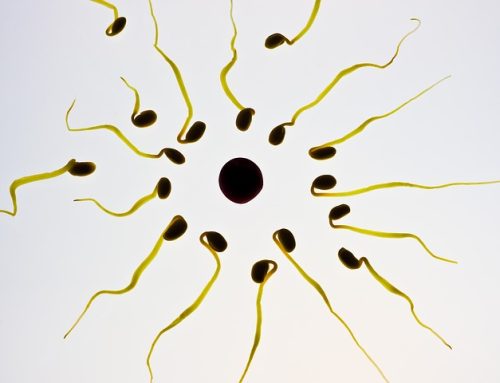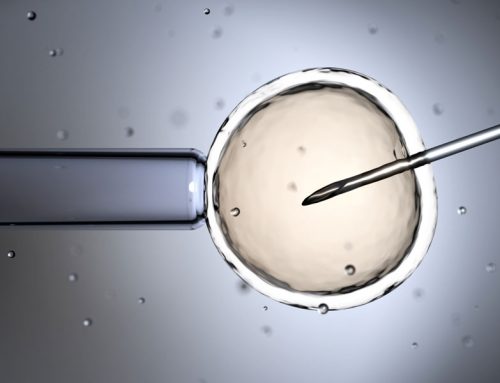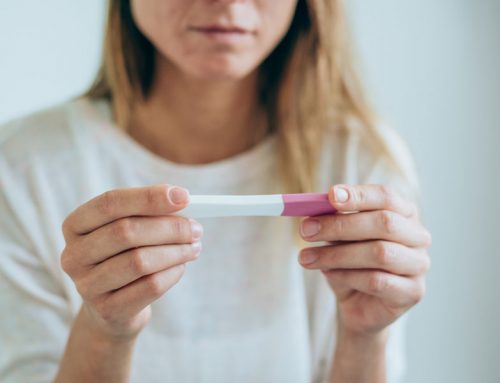
Data from randomized controlled trials show that Coenzyme Q10 supplementation is positively associated with improved sperm density and motility and, to a certain extent, with improved pregnancy rates.
Coenzyme Q10 supplementation results in significant improvement in various sperm parameters: sperm density, sperm motility, and sperm morphology and, quite possibly, in pregnancy rates [Safarinejad].
Actually, we have known about the benefits of Coenzyme Q10 for treating men with significant abnormalities in sperm morphology and motility for 10 – 15 years now. Let’s have a look at the clinical research results reported in journal articles indexed by Medline.
CoQ10 and Male Infertility Associated with Abnormal Sperm Parameters
Safarinejad, M. R. (2009). Efficacy of Coenzyme Q10 on semen parameters, sperm function and reproductive hormones in infertile men. The Journal Of Urology, 182(1), 237–248.
Researchers enrolled 212 infertile men with various sperm abnormalities. Half of the patients were randomly assigned to receive 300 milligrams of Coenzyme Q10 daily, and half took matching placebos for 26 weeks. The researchers then continued to follow the patients’ progress for a 30-week treatment-free phase.
The Coenzyme Q10 treatment resulted in significant improvement in sperm count and sperm motility at the p = 0.01 level for both. Furthermore, there was a significant increase in the percentage of normally formed sperm with the Coenzyme Q10 therapy, also at the p = 0.01 level.
Safarinejad, M. R. (2012). The effect of coenzyme Q₁₀ supplementation on partner pregnancy rate in infertile men with idiopathic oligoasthenoteratozoospermia: an open-label prospective study. International Urology And Nephrology, 44(3), 689–700.
In this study, researchers enrolled 287 infertile men with various sperm abnormalities. They treated the patients with 300 milligrams twice daily for 12 months. They then followed the patients’ progress for another 12 months with no Coenzyme Q10 treatment.
After 12 months of treatment with Coenzyme Q10, the patients showed significant improvement in mean sperm concentration, sperm motility, and sperm with normal morphology, all at the p = 0.05 level. Moreover, based on data from the follow-up period, the researchers concluded that the CoQ10 supplementation improved the pregnancy rate.
Balercia, G., Buldreghini, E., Vignini, A., Tiano, L., Paggi, F., Amoroso, S., & Littarru, G. (2009). Coenzyme Q10 treatment in infertile men with idiopathic asthenozoospermia: a placebo-controlled, double-blind randomized trial. Fertility And Sterility, 91(5), 1785–1792.
Researchers assigned 55 patients with abnormal sperm parameters to a treatment group taking 200 milligrams of Coenzyme Q10 or placebo daily for three months following a one-month run-in period. The three-month supplementation period was followed by three months of follow-up.
The results showed that Coenzyme Q10 significantly increased CoQ10 levels in seminal plasma and sperm cells. The CoQ10 supplementation was also significantly associated with increased sperm cell total motility and forward motility.
The researchers noted the greatest response in the patients who had the lower baseline sperm motility levels and the lower baseline levels of CoQ10.
Most interesting of all, after three months of wash-out following the end of the six-month treatment period, the researchers found that the sperm cell total motility and forward motility were greatly reduced compared with the levels at the end of the six-month treatment period.
CoQ10 and Male Infertility Associated with Oxidative Stress
Festa, R., Giacchi, E., Raimondo, S., Tiano, L., Zuccarelli, P., Silvestrini, A., Mancini, A. (2014). Coenzyme Q10 supplementation in infertile men with low-grade varicocele: an open, uncontrolled pilot study. Andrologia, 46(7), 805–807.
Variocele is the medical term for an enlargement of the veins within the scrotum. Varicoceles are a known cause of male infertility; they cause increased oxidative stress. They can result in low sperm production and decreased sperm quality.
In this study, researchers recruited 38 infertile men with low-grade variocele, who were given 100 milligrams of Coenzyme Q10 daily for three months. The Coenzyme Q10 treatment improved semen parameters and antioxidant status.
The researchers concluded that oxidative stress is an important factor in the development of male infertility, also in cases of varicocele, and that the use of antioxidant therapy involving Coenzyme Q10 supplementation should be considered.
Kobori, Y., Ota, S., Sato, R., Yagi, H., Soh, S., Arai, G., & Okada, H. (2014). Antioxidant cosupplementation therapy with vitamin C, vitamin E, and coenzyme Q10 in patients with oligoasthenozoospermia. Archivio Italiano Di Urologia, Andrologia: Organo Ufficiale [Di] Societa Italiana Di Ecografia Urologica E Nefrologica, 86(1), 1–4.
The researchers in this study were motivated by the hypothesis that oxidative stress, the overproduction of harmful reactive oxygen species, is a process that plays a major role in the development of abnormal sperm parameters. Oxidative stress results in damage to cell structure as well as to various lipids, proteins, and DNA.
They recruited 169 infertile men with abnormal sperm parameters and evaluated the effectiveness of a combination antioxidant therapy consisting of 80 milligrams of vitamin C, 40 milligrams of vitamin E, and 120 milligrams of Coenzyme Q10 daily for six months.
They found significant improvements in sperm concentration and motility associated with the Coenzyme Q10 therapy. Furthermore, the treatment resulted in a partner pregnancy rate of 28.4%.
Nadjarzadeh, A., Shidfar, F., Amirjannati, N., Vafa, M. R., Motevalian, S. A., Gohari, M. R., & Sadeghi, M. R. (2014). Effect of Coenzyme Q10 supplementation on antioxidant enzymes activity and oxidative stress of seminal plasma: a double-blind randomised clinical trial. Andrologia, 46(2), 177–183.
Researchers investigated the effect of CoQ10 supplementation on the endogenous antioxidant enzymes superoxide dismutase and catalase in the seminal plasma in infertile men. The 47 patients took 200 milligrams of CoQ10 or placebo daily for 3 months.
After three months of treatment with Coenzyme Q10, the patients had significantly higher superoxide dismutase and catalase activity compared to the patients in the placebo group. There was also a significant positive correlation between CoQ10 concentrations and normal sperm morphology.
The researchers concluded that Coenzyme Q10 treatment at the level of 200 milligrams per day can attenuate oxidative stress in seminal plasma and improve semen parameters and endogenous antioxidant enzyme activity.
Conclusion: CoQ10 and Male Infertility
Adequate CoQ10 levels are necessary necessary for Coenzyme Q10’s mitochondrial bio-energetics role and antioxidant role in seminal fluid and sperm cells.
Coenzyme Q10 supplements are safe, effective, and affordable.
Not all CoQ10 supplements are the same. Some are better absorbed and give better bio-availability than others.
See: López-Lluch, G., Del Pozo-Cruz, J., Sánchez-Cuesta, A., Cortés-Rodríguez, A. B., & Navas, P. (2019). Bioavailability of coenzyme Q10 supplements depends on carrier lipids and solubilization. Nutrition, 57, 133–140.
One Coenzyme Q10 supplement has given significant health benefits for heart failure patients, senior citizens, and Gulf War Illness patients.
Mortensen, S. A., Rosenfeldt, F., Kumar, A., Dolliner, P., Filipiak, K. J., Pella, D., & Littarru, G. P. (2014). The effect of coenzyme Q10 on morbidity and mortality in chronic heart failure: results from Q-SYMBIO: a randomized double-blind trial. JACC. Heart Failure, 2(6), 641-649.
Alehagen, U., Johansson, P., Björnstedt, M., Rosén, A., & Dahlström, U. (2013). Cardiovascular mortality and N-terminal-proBNP reduced after combined selenium and Coenzyme Q10 supplementation: a 5-year prospective randomized double-blind placebo-controlled trial among elderly Swedish citizens. International Journal of Cardiology, 167(5), 1860-1866.
Golomb, B. CoQ10 and Gulf War illness. Neural Computation 2014 Nov; Vol. 26 (11), pp. 2594-651.
The information presented in this review article is not intended as medical advice and should not be used as such.









Leave A Comment